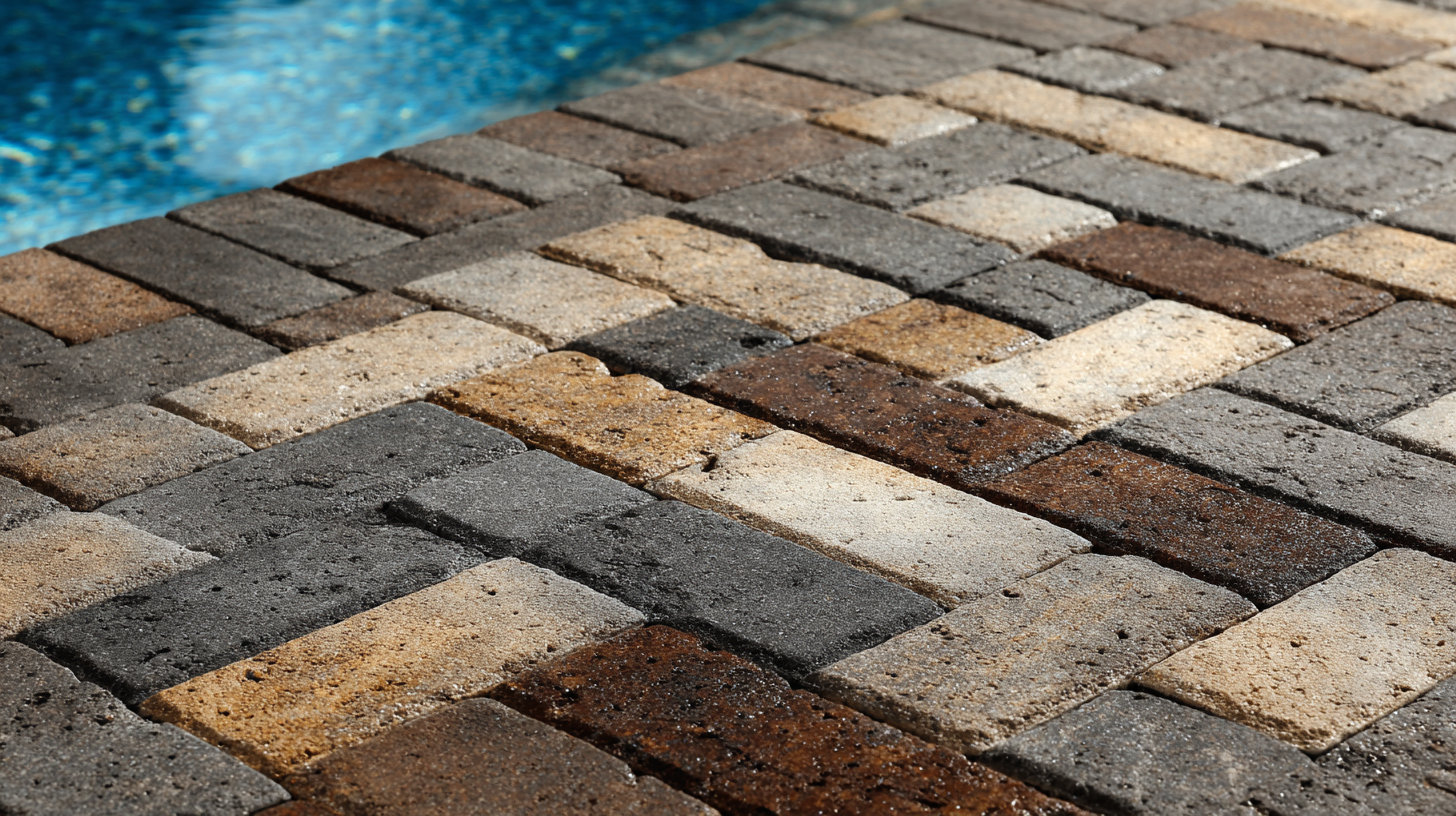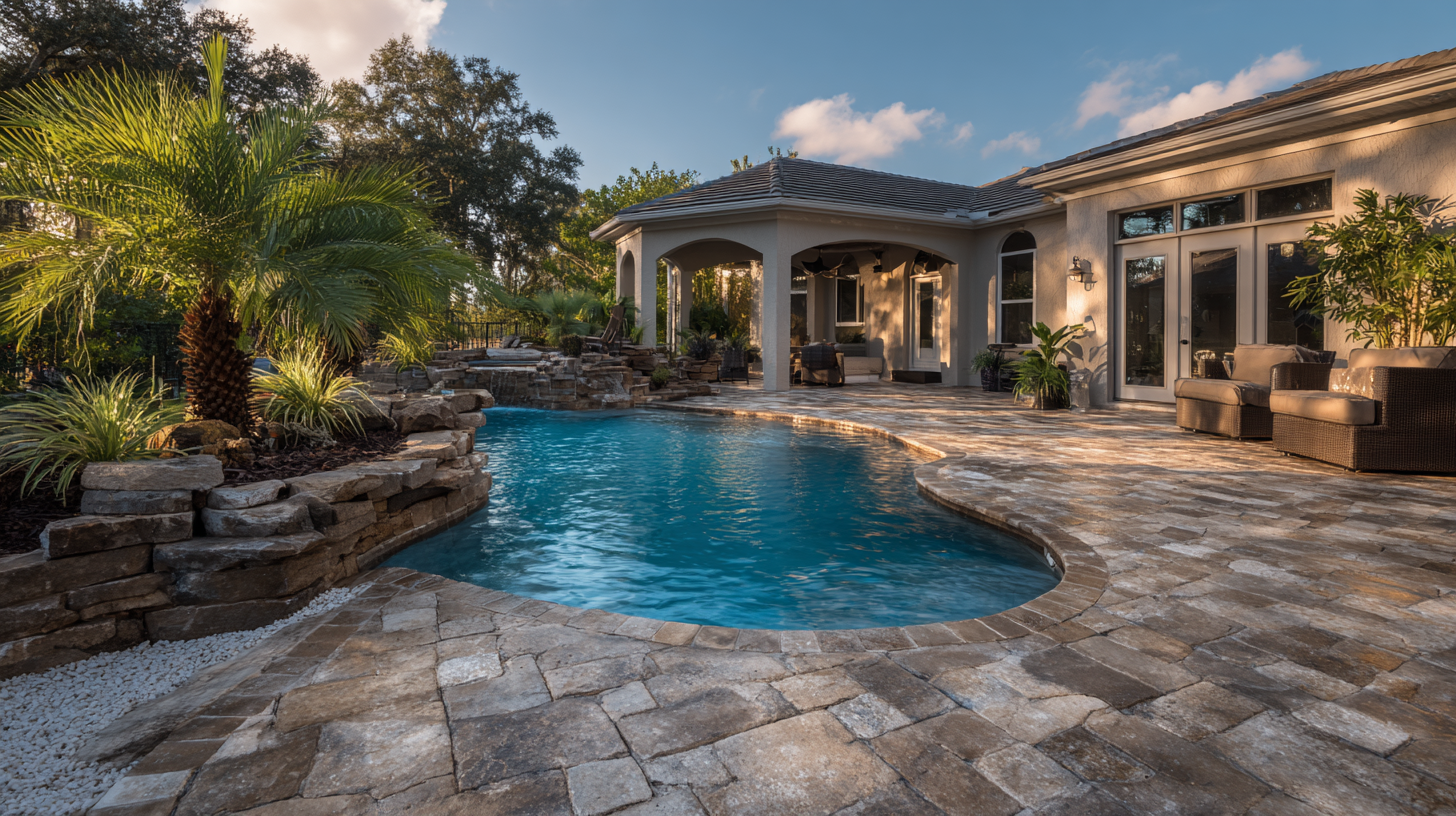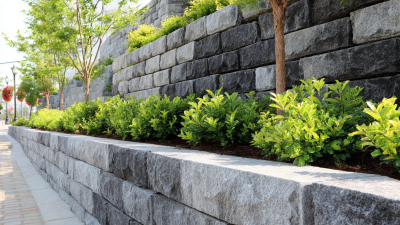What is the Best Paver Sealer? A Comprehensive Guide to Choosing the Right Option
When it comes to maintaining the beauty and longevity of your outdoor surfaces, choosing the best paver sealer is an essential step that shouldn't be overlooked. Pavers, whether they are made from bricks, stones, or concrete, can significantly enhance your landscaping, but they are also susceptible to the elements. Over time, exposure to rain, UV rays, and stains can dull their appearance and compromise their integrity. Therefore, applying a high-quality sealer becomes crucial in protecting your investment.
In this comprehensive guide, we will explore the various types of paver sealers available and help you identify which option suits your specific needs. From penetrating sealers that offer deep protection to surface sealers that provide a glossy finish, understanding the differences is key to making an informed decision. Additionally, we will discuss factors such as application methods, drying times, and durability, ensuring that you find the best paver sealer that allows your outdoor spaces to shine for years to come. Whether you're a homeowner looking to enhance your patio or a contractor seeking the ideal solution for clients, this guide will equip you with the knowledge necessary to choose wisely.

Understanding the Importance of Paver Sealers for Longevity
Paver sealers play a crucial role in enhancing the longevity of your paved surfaces, whether they are driveways, patios, or walkways. By forming a protective barrier, these sealers prevent damage caused by weather elements, oil spills, and everyday wear and tear. Regular exposure to rain, sun, and fluctuating temperatures can lead to fading, stains, and even cracks. Applying a high-quality sealer helps to maintain the aesthetic appeal of your pavers while ensuring they remain durable through the years.
Moreover, sealers offer additional benefits, such as reducing the frequency of maintenance and cleaning required. With a sealed surface, dirt and grime find it more difficult to penetrate, making it easier to wash away contaminants. This not only saves time but also prolongs the overall lifespan of the pavement. Understanding the importance of paver sealers is essential for homeowners and property managers alike, as it directly correlates with the long-term investment in the beauty and functionality of their outdoor spaces.
Types of Paver Sealers: Which One is Right for Your Project?
When choosing the right paver sealer for your project, it's essential to understand the different types available and their specific applications. Generally, paver sealers fall into two main categories: film-forming and penetrating sealers. Film-forming sealers create a protective layer on the surface of the pavers, enhancing color and providing a glossy finish. These sealers are ideal for decorative pavers in residential driveways or patios, as they not only protect against stains but also enhance the visual appeal of the surface.
On the other hand, penetrating sealers work by infiltrating the pores of the pavers, offering protection from within. They are better suited for natural stone or porous concrete pavers, providing water and oil resistance without altering the appearance. This type of sealer is often recommended for high-traffic areas or locations prone to moisture, as it minimizes the risk of mold and mildew growth. Understanding the specific needs of your paver surface and the environmental conditions will guide you in selecting the best sealer for your project.
Key Factors to Consider When Choosing a Paver Sealer
When selecting a paver sealer, several key factors should be taken into consideration to ensure optimal performance and longevity. First, it’s essential to determine the type of paver material you are working with, as different materials may require specific sealers. For instance, concrete pavers benefit from sealers with a penetrating formula that enhances color and resists fading, while natural stone pavers may require sealers that offer UV protection and prevent staining without altering their natural appearance.
Another crucial factor is the type of finish you desire. Sealers can provide various finishes, ranging from matte to high-gloss. According to a report by the American Society of Landscape Architects, gloss finishes can enhance the aesthetic appeal of pavers but may require more regular maintenance to retain their shine. Additionally, consider the climate of your area, as some sealers are specifically formulated to withstand harsh weather conditions, providing better protection against freeze-thaw cycles and extreme UV exposure. A study by the National Association of Home Builders indicates that using the right sealer can extend the lifespan of pavers by up to 15 years, showcasing the importance of thoughtful selection in maintaining your outdoor spaces.
Application Techniques: How to Apply Paver Sealers Effectively
 Applying paver sealers effectively requires careful preparation and execution to achieve optimal results. Before starting, it's essential to ensure that the surface is clean and dry. Begin by thoroughly cleaning the pavers with a pressure washer or a stiff brush to remove dirt, grime, and any previous sealant residues. Allow the surface to dry completely, usually for at least 24 hours, to prevent moisture from being trapped under the sealer, which can lead to peeling or bubbling.
Applying paver sealers effectively requires careful preparation and execution to achieve optimal results. Before starting, it's essential to ensure that the surface is clean and dry. Begin by thoroughly cleaning the pavers with a pressure washer or a stiff brush to remove dirt, grime, and any previous sealant residues. Allow the surface to dry completely, usually for at least 24 hours, to prevent moisture from being trapped under the sealer, which can lead to peeling or bubbling.
Once the surface is prepped, choose the appropriate applicator for your chosen sealer. Roller applications are often efficient for larger areas, providing even coverage, while a brush may be more suitable for edges and intricate designs. Begin sealing from one corner of the area and work your way outwards to avoid stepping on freshly applied sealant. Apply the sealer in thin, even coats and avoid over-saturating any specific area. For the best results, follow the manufacturer's instructions regarding drying times between coats and any recommended number of layers. This careful approach ensures a durable, protective finish that enhances the beauty of your pavers.
Maintenance Tips for Prolonging the Life of Your Paver Sealer
To ensure the longevity of your paver sealer, regular maintenance plays a crucial role. First, consider the climate and seasonal changes in your area, as these factors significantly affect the durability of the sealer. It's advisable to perform a thorough cleaning of the pavers at least once a year, removing any debris, dirt, or algae that may accumulate. Using a pressure washer or a mild detergent solution can help restore the pavers to their original state without harming the sealer.
Additionally, it’s essential to inspect the sealer periodically for signs of wear and tear. If you notice discoloration or fading, reapplying the sealer can protect the pavers from the elements. Using a high-quality paver sealer that suits your specific type of pavers will also enhance its protective qualities. Finally, avoiding harsh chemicals during cleaning and applying a fresh coat of sealer every few years will prolong its effectiveness, ensuring your paved surfaces look great and remain protected for years to come.



